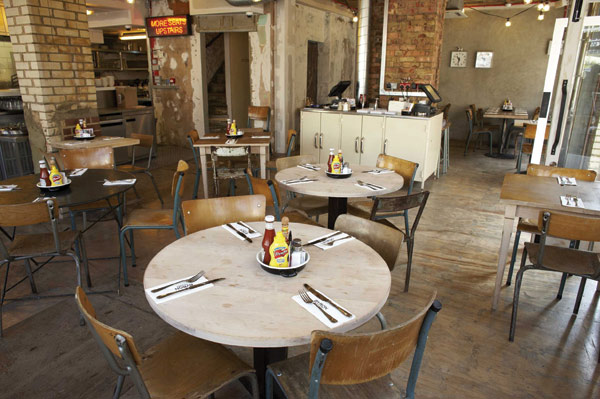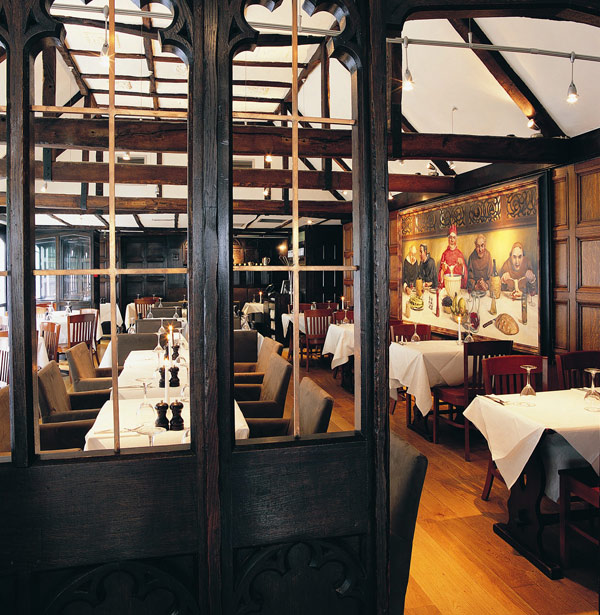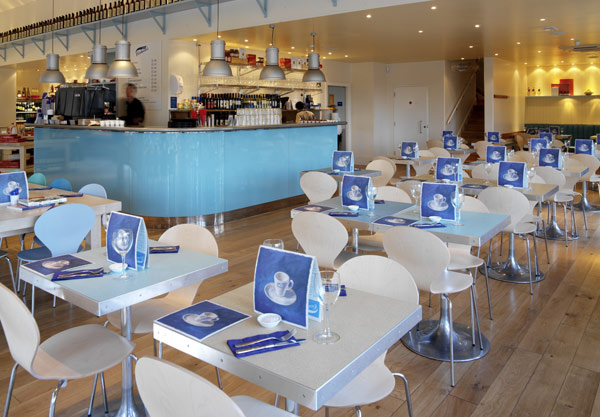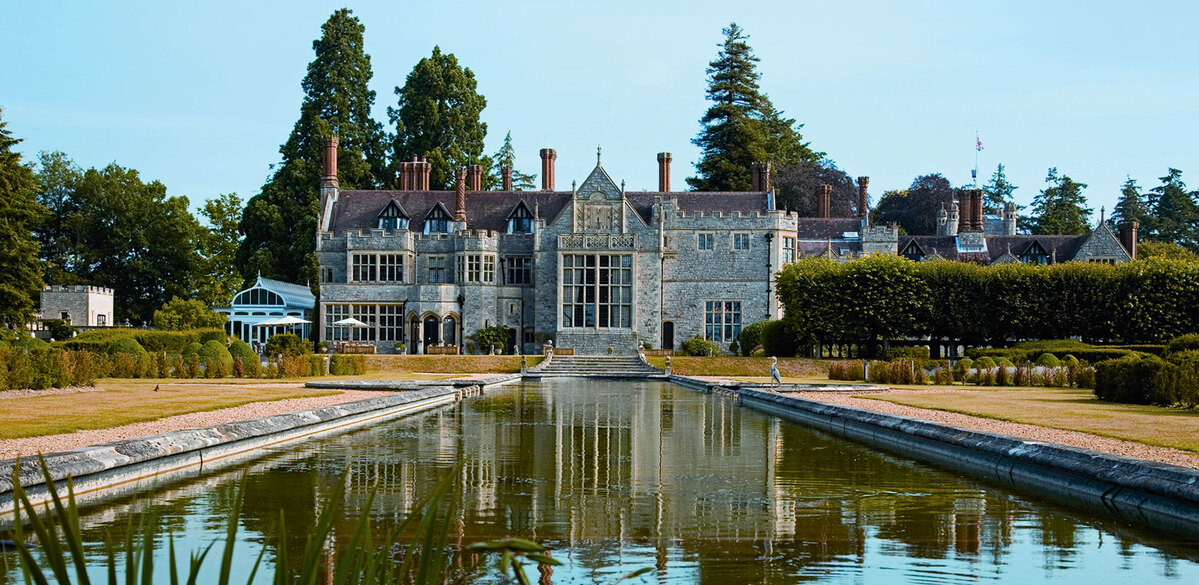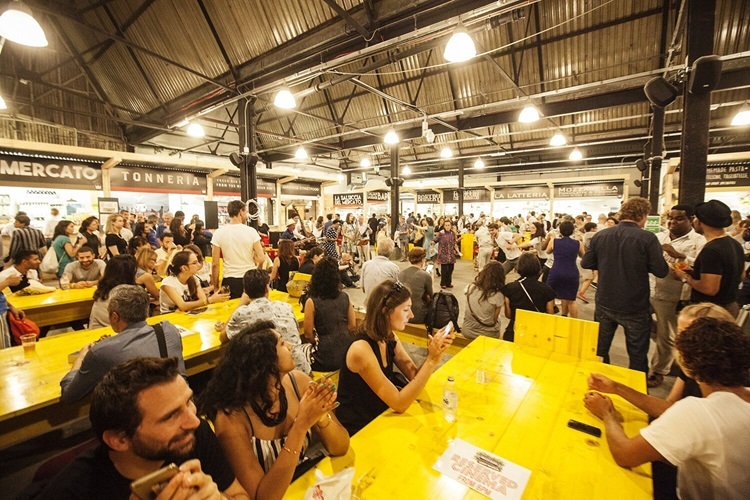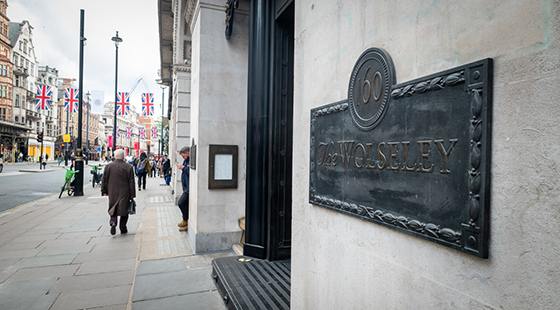After a calamitous start to 2018 can casual dining rise again?
For years the casual dining market boomed, but a perfect storm of rising rents, staffing costs and a declining pound has taken down some of the industry's giants. But there's still hope for the future, says Emma Lake
It has been a tumultuous start to 2018 for casual dining, with giants including Jamie's Italian, Byron, Strada and Prezzo announcing mass closures as industry pressures bite, but will the demise of these former kings pave the way for a renaissance?
Just three days into the year, The Caterer revealed that Italian restaurant Strada had closed 11 of its branches, blaming "disappointing trading and rising costs"; six days later it was reported that burger chain Byron was pursuing a Company Voluntary Arrangement (CVA) that would see more than a dozen sites closed.
Jamie's Italian then announced the closure of 12 sites under a CVA that revealed £71.5m of debt, followed by Square Pie, which shut all of its branches. Prezzo has since revealed it is looking to close 94 of its 302 sites, and to agree a CVA which it hopes will allow it to rise from the ashes of the casual dining bonfire. Then, earlier this week, it was revealed that Carluccio's is in discussion with auditors KPMG to assess its options.
Just a few years on from the casual-dining boom a postmortem of the sector is under way with the high street giants facing a myriad of charges, including offering "awful" food that does not represent value for money, taking on poor sites at inflated rents and pursuing expansion at all costs.
Mounting financial pressures, including rate and rent increases, staffing costs and a declining pound following the Brexit vote have taken their toll, with accountancy group UHY Hacker Young revealing that one third of the UK's top 100 restaurant chains are now loss-making.
Peter Martin, vice-president of business consultancy CGA, told The Caterer
Martin explained that consumer spend remains steady but as new restaurants continue to open, offering new experiences to diners looking for quality and value for money, the competition has got fiercer. He said: âPerhaps some of the offers did get a bit stale and were not exciting enough. If there was some complacency in the market, and I think there was with some operators, itâs showing its face now. The consequences are pretty clear but that does not mean the market is dead.â
When Jon Knight, chief executive officer of the Jamie Oliver Restaurant Group, spoke at the Casual Dining Show last month, he acknowledged that the group had failed to keep up with the competition. He said: âOther brands started doing what we were doing with a more affordable price and with the benefit of being the ânew thingâ. Smaller restaurants started to overtake us.
âWe started to move into towns where there wasnât large footfall and new sites were chosen that didnât work for us. Most importantly, we lost touch with Jamie, there was a growing disconnect between what Jamie was doing on TV and in his books, and people werenât experiencing that in the restaurants.â
Kate Nicholls, chief executive of UKHospitality, expects further casualties and has called for government action. She told The Caterer: âThe restaurant sector is still dynamic and innovative, but the toxic mix of soaring business rates, rising regulatory costs, Brexit-fuelled food inflation and softening consumer demand are proving increasingly damaging for a number of businesses.
âThis is a critical period for the UK economy and particularly the high street in the run-up to Brexit and hospitality businesses must be a priority for support. Around 200 restaurants, many of which were viable and robust businesses, have closed this year, as well as an estimated 6,000 jobs lost as a result of a perfect storm of costs.â
She added: âUnless urgent action is taken by the government in this monthâs spring statement, there will be further casualties in the coming months.â
Casual dining has not been alone in suffering the results of the âperfect stormâ â" fine dining stalwarts including Turners at 69 in Birmingham, and Galvin Bistrot de Luxe in Marylebone, have also closed their doors â" but the sector is where the most dramatic affects have been felt.
For Martin the closures seen in 2018 represent âa correctionâ in a sector that saw unsustainable growth driven by private equity, which sent rents soaring and saturated the market. He explained: âPrivate equity brought investment in, but also brought pressure to roll-out more quickly than people should have done and perhaps not to do market due-diligence. I think some sites have gone wrong and now weâre going through a correction. Graeme Smith, managing director at AlixPartners, which has led CVAs for Jamieâs Italian and Prezzo, said sites that looked promising a few years ago have been rendered unviable.
He told The Caterer: âA lot of these issues have come together at the same time and that has resulted in certain sites either being entirely uneconomic, so they need to be closed, or requiring a reset on the rental costs to make them economic.â
He added: âWe went through a period in which investing in the roll-out of new restaurant sites was delivering very strong returns on capital. Of course, in any cyclical industry, once you get that influx of new supply it changes the trading dynamics in any given location, depending on how many restaurants have come in. Itâs too simplistic to say that sites that were chosen were just the wrong sites.â
Smith does not believe Britainâs love of casual dining is over and is optimistic for the future of chains entering CVAs. He said: âOne thing that we are always careful to do when working with businesses that are contemplating some form of restructuring activity is to take the time to ensure they have a business plan which enables the business to grow and to develop on the other side.â
While more casualties are expected there is optimism, with experts predicting a renaissance could be on the horizon. Simon Chaplin, head of restaurants at commercial real estate company Christie & Co, believes the casual-dining storm will present opportunities for new vendors as landlords reassess rents. He said: âIâm fairly confident about the whole sector. I think the situation youâve got at the minute is a bit of realignment.
âI spoke to a group last week that has expanded over the past three years and they see this as a great opportunity. They can see sites becoming available they havenât taken up until now because the rents have been too high. Theyâve got very good sites being offered to them and theyâve got good ideas. Theyâre new and exciting and theyâre going to be the people that keep casual dining going.â
Smith added: âThereâs definitely still money available to invest in growth opportunities, including for those smaller businesses. If they are well-capitalised, then the next few years could be really good. There are fewer people looking to expand so the competition for sites wonât be as intense. The ability to get better pitches at lower rents should be an opportunity.
âWe may look back on 2018 as a really good vintage.â
Carluccioâs working with restructuring experts KPMG to assess options>>
Prezzo confirms CVA bid including closure of 94 sites>>
Videos from The Caterer archives



